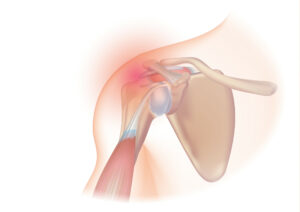Empowering Your Shoulders: A Fresh Perspective on Rotator Cuff Syndrome
Introduction
Do you experience persistent shoulder pain? Rotator cuff syndrome is a common source of shoulder pain and discomfort, affecting individuals of all ages and lifestyles. Applied kinesiology allows us to dive into an innovative approach to understanding and managing rotator cuff syndrome. Through the lens of A.K., we can gain a deeper understanding of rotator cuff syndrome and discover a new pathway to relief.
Defining Rotator Cuff Syndrome
The rotator cuff is a group of four muscles and tendons that envelop the shoulder joint, providing stability and facilitating movement. Rotator cuff syndrome encompasses a range of injuries and conditions, including tendinitis, bursitis, and tears, which can result in pain, weakness, and reduced shoulder mobility. This condition may also result from aging with the degeneration of tissues in the shoulder.
Using an A.K. Lens
When it comes to rotator cuff syndrome, applied kinesiology allows us to view it through a unique lens:
-
Muscle Testing for Rotator Cuff Syndrome: Applied kinesiologists use muscle testing to evaluate the strength and function of the muscles in and around the shoulder joint. Weakness or imbalances in these muscles may indicate issues contributing to rotator cuff syndrome.
-
Structural Assessment: The alignment and positioning of the shoulder joint and surrounding structures are pivotal factors in rotator cuff syndrome. Applied kinesiology practitioners assess the structural components to determine if misalignments play a role in the condition.
-
Nutritional Assessment: Nutrition can significantly impact the body’s ability to heal and maintain the health of the shoulder structures. Applied kinesiology can identify specific nutritional needs to support the healing process.
-
Comprehensive Approach: Applied kinesiology takes a holistic view of a patient’s health, addressing various aspects of their well-being, including physical, emotional, and nutritional factors.
Conclusion
Rotator cuff syndrome can be a challenging and painful condition, but applied kinesiology offers a unique perspective to understand the root causes and manage it effectively. By assessing muscle strength, structural alignment, and nutrition, applied kinesiologists assist patients with rotator cuff syndrome in finding relief and improving their overall well-being.
 True Health | Charleston, WV
True Health | Charleston, WV
Recent Comments